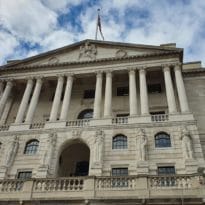Research by wealth manager Quilter revealed that 39% of people are more likely to hold cash because of this year’s events, with a further 26% admitting they need an emergency fund.
Over the course of the pandemic, 25% of people were able to put away more savings, with nearly three quarters (72%) planning to either put the money in a savings account or just let it sit in their bank account.
But while the general rule of thumb is to have three to six months’ worth of living expenses saved up in an easily-accessible account, Quilter believes advisers should encourage people to invest additional savings in order to reach their financial goals in a shorter period of time.
Olivia Kennedy, financial planner, Quilter, says: “The thing to remember is that cash is not always the safe bet. Inflation eats away at the value of money and low interest rates means (people) may not be getting that much from their account.”
Meanwhile, Aegon warned that a lack of rainy-day savings could force over-55s to dip into their retirement savings, at a time when the value has already fallen.
Research from the retirement specialist found that over half (55%) of people would be unable to fund more than three months of expenses, with a quarter (24%) of those unprepared for any financial emergency. Only a fifth (21%) of people were found to have more than a year’s worth of savings in their rainy-day fund, with the average lasting 8 months.
However, Aegon said the pandemic had highlighted the importance of financial resilience, leading to 37% of people in the UK now more likely to build up a rainy-day fund. The results were highest amongst those living in London (47%), Bristol (40%) and Manchester (40%).
According to Kate Smith, head of pensions, Aegon, people should place greater focus on financial planning, with a clear picture of their savings and their expenditure and clear targets for how much they need to save.
Smith said: “Our research highlights the contrast in UK’s financial health between the financial ‘haves’ and ‘have nots’ and an individual’s ability to manage their money. While the economic outlook has prompted many to begin building a rainy day fund for the first time, others have been exposed as being perilously under prepared.
“If we can learn one thing financially from the pandemic, it’s the importance of financial resilience and have access to emergency savings.
“It is particularly concerning that for 1 in 4 their financial priority is ‘just getting by’. Budgeting and saving for a rainy-day play such an important part in people’s financial planning and it’s important they get into the savings habit and then prioritise different savings pots.”




































